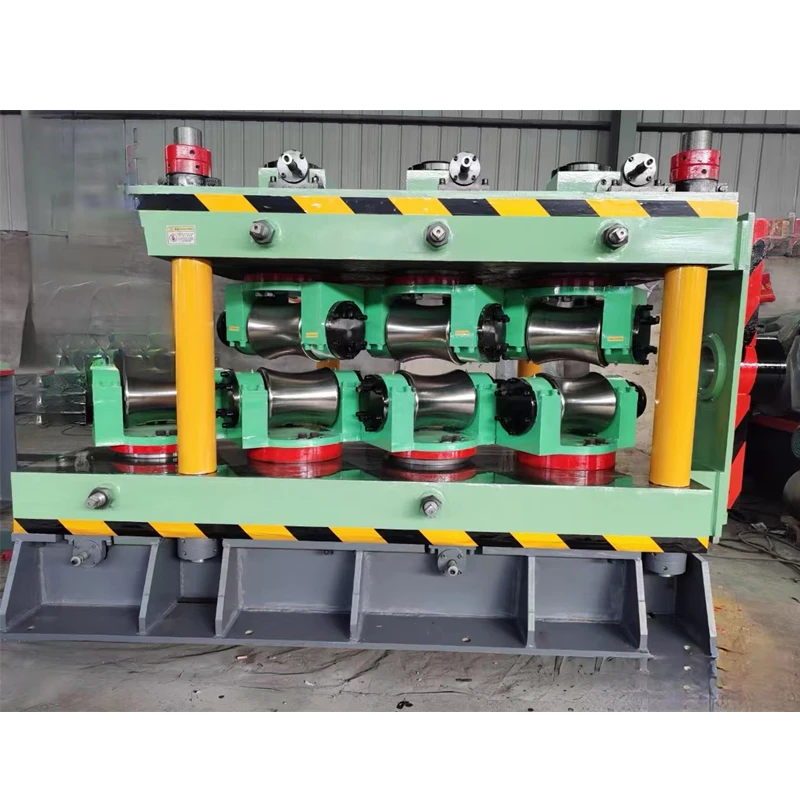Optimizing Mill Roller Performance for Enhanced Productivity and Efficiency in Manufacturing Processes
The Role of Mill Rollers in Modern Manufacturing
In the landscape of modern manufacturing, mill rollers play a pivotal role in the processing of materials. These essential components can be found in various industries, from steel and paper to rubber and plastics, serving as critical machinery for shaping, refining, and transforming raw materials into finished products. Understanding the functionality and importance of mill rollers provides insight into the efficiency and efficacy of manufacturing processes.
Mill rollers are cylindrical tools used to crush, grind, or fold materials by applying pressure or shear force. Their design and construction are essential; typically made from high-strength metals, they are engineered to withstand intense physical forces and chemical reactions that occur during production. The basic mechanism involves two or more rollers rotating in opposite directions. As materials are fed between these rollers, they are compressed, stretched, or otherwise manipulated to achieve the desired form or consistency.
In steel manufacturing, for instance, mill rollers are crucial for processes like hot rolling and cold rolling. Hot rolling involves the deformation of metal at high temperatures, making the material easier to shape. The heated metal is passed through a series of rollers to achieve the desired thickness and structure. Cold rolling, on the other hand, occurs at room temperature and is typically used for producing sheets, plates, or foils with a smooth finish and precise dimensions. Both processes rely heavily on the quality and performance of the mill rollers involved.
Similarly, the paper industry utilizes mill rollers in the pulping and manufacturing processes
. In this sector, rollers help in pressing pulp into sheets and in controlling the thickness and texture of the final paper product. The efficiency of paper production is significantly influenced by the roller's ability to apply even pressure and maintain consistent spacing, which is vital for achieving uniformity in the final output.mill roller

In addition to their mechanical role, mill rollers contribute to the sustainability and efficiency of manufacturing processes. For instance, advancements in roller design—such as the development of high-performance materials or the incorporation of advanced coatings—have led to increased durability and reduced wear. This not only enhances the longevity of the equipment but also minimizes downtime and maintenance costs, ultimately improving productivity and reducing the environmental footprint of manufacturing facilities.
Moreover, automation and digital technology are reshaping how mill rollers are used in modern manufacturing lines. The integration of sensors and computer systems allows for real-time monitoring and adjustments, ensuring optimal performance. This technological evolution facilitates predictive maintenance, where potential issues can be identified before they lead to equipment failure, thus ensuring continuous workflow and efficiency.
The versatility of mill rollers extends to the food and textile industries as well. In food processing, rollers are employed to grind grains, crush nuts, and even refine chocolate, enabling precise control over texture and consistency. For textiles, mill rollers are crucial in processes such as calendering, where they help in finishing fabric surfaces, imparting sheen or texture enhancements as desired.
In conclusion, mill rollers are integral to the manufacturing landscape, influencing the quality and efficiency of various production processes across multiple industries. Their ability to manipulate materials through pressure ensures that manufacturers can produce high-quality products consistently. With ongoing innovations in roller design and technology, the future of mill rollers looks promising, paving the way for enhanced manufacturing practices that will continue to shape the economy and society at large. As industries strive for greater efficiency and sustainability, the role of mill rollers will undoubtedly remain central in the pursuit of these goals.
-
High Frequency Straight Seam Welded Pipe Production Line-BzZhou Xinghua Machinery Equipment Manufacturing Co., LTD.|line pipe steel&welded gas pipeNewsJul.30,2025
-
High Frequency Straight Seam Welded Pipe Production Line-BzZhou Xinghua Machinery Equipment Manufacturing Co., LTD.|High Precision&Automated SolutionsNewsJul.30,2025
-
High Frequency Straight Seam Welded Pipe Production Line - BzZhou Xinghua Machinery Equipment Manufacturing Co., Ltd.NewsJul.30,2025
-
High Frequency Straight Seam Welded Pipe Production Line-BzZhou Xinghua Machinery Equipment Manufacturing Co., LTD.|Precision Welding, High EfficiencyNewsJul.30,2025
-
High Frequency Straight Seam Welded Pipe Production Line|BzZhou Xinghua|Precision Welding&EfficiencyNewsJul.30,2025
-
High Frequency Straight Seam Welded Pipe Production Line - BzZhou Xinghua|Precision Engineering&EfficiencyNewsJul.30,2025


